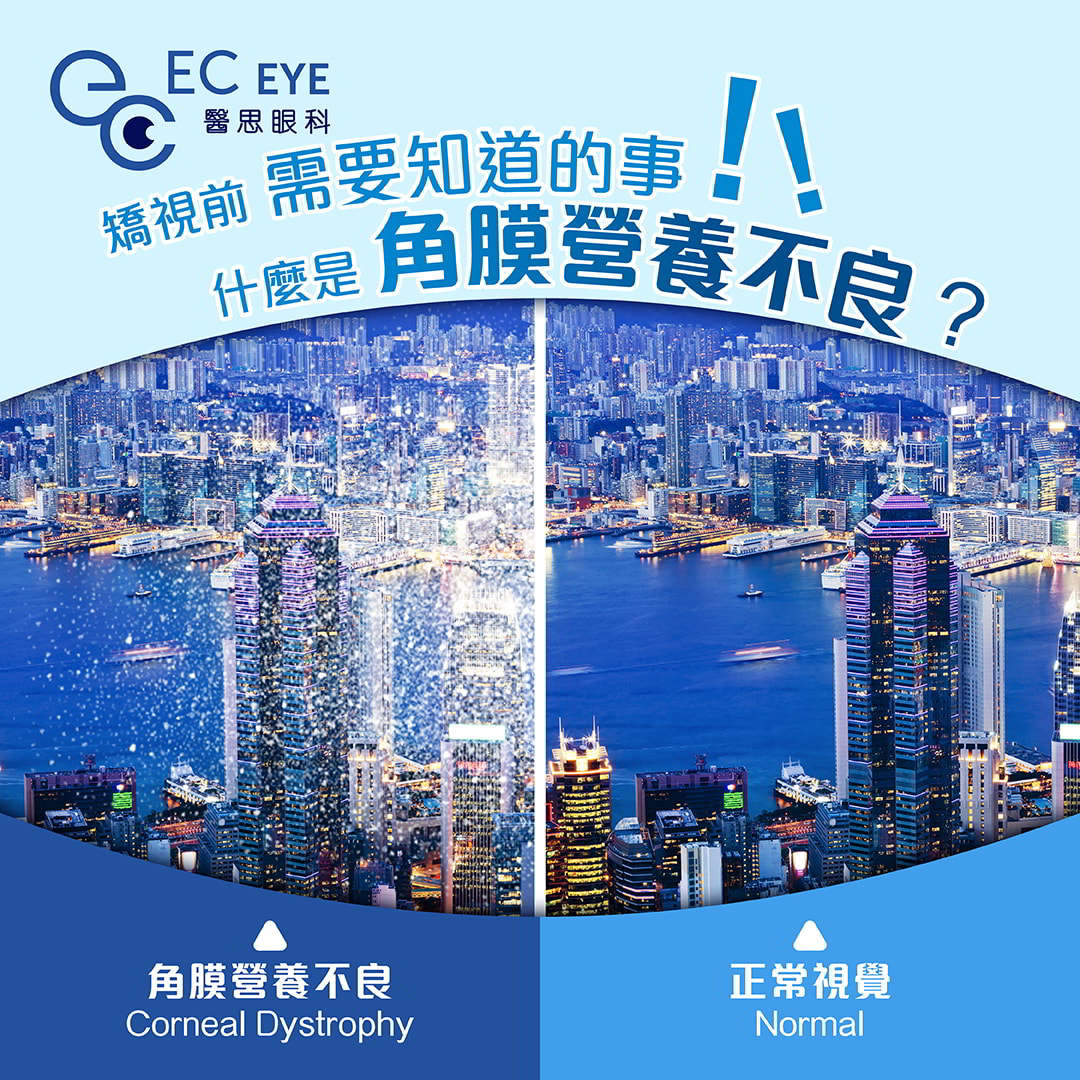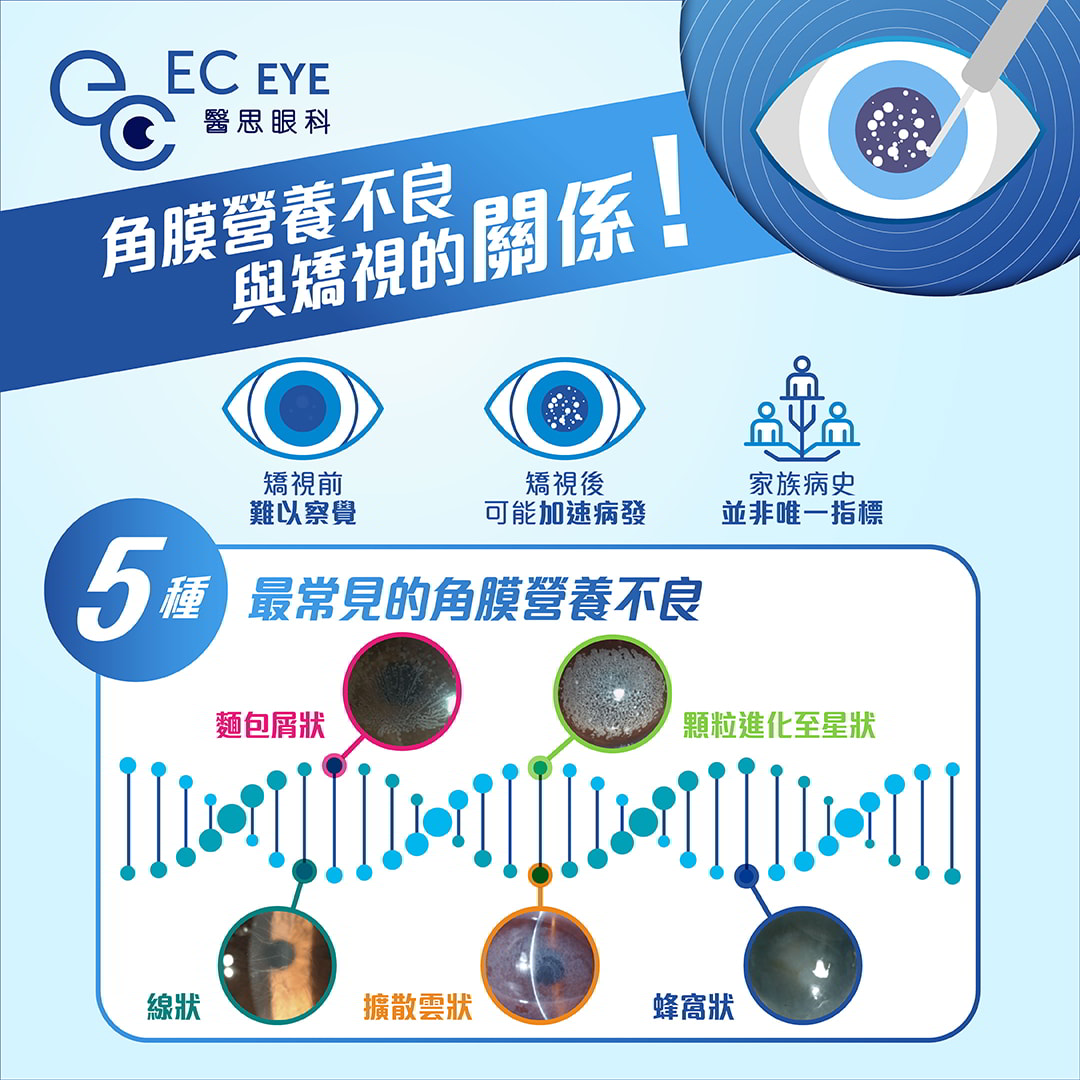


What is Corneal Dystrophy?
Corneal dystrophy is a genetic corneal disorder characterized by snowflake‑like protein deposits in the cornea, leading to corneal clouding. This can cause blurred or reduced vision and, in severe cases, permanent vision loss. The disease may remain asymptomatic for years, and even detailed pre‑surgery examinations may fail to detect the underlying risk. Research has shown that following laser vision correction procedures, such as SMILE, the corneal healing process may trigger hidden genetic issues, accelerating the onset of corneal dystrophy and resulting in irreversible vision damage. Therefore, genetic testing before refractive surgery is especially important to safeguard vision health.
Potential Risks of Corneal Dystrophy and Refractive Surgery
Even if traditional pre‑surgery examinations—such as vision tests, intraocular pressure measurements, or slit‑lamp examinations—show normal results, hidden genetic mutations may still go undetected. Below is the connection between corneal dystrophy and refractive surgery:
1️⃣ Difficult to Detect Before Refractive Surgery
In the early stages, corneal dystrophy may present no symptoms at all, and traditional examinations often fail to detect the potential genetic risks.
2️⃣ Risk of Accelerated Onset After Refractive Surgery
After laser vision correction, the corneal healing process may trigger underlying genetic issues, leading to corneal clouding, vision loss, and other permanent complications that can greatly impact a patient’s daily life.
3️⃣ No Family History ≠ No Risk
Corneal dystrophy does not occur only in people with a family history. Even if no related cases exist in your family, you may still carry underlying genetic mutations.

Genetic Testing for Refractive Surgery: A Key to Comprehensive Vision Protection
To enhance the safety of refractive surgery, we have introduced a new genetic testing technology. This test can identify five common mutations in the TGFBI gene, helping you better understand the health of your eyes before undergoing surgery and avoid potential vision risks.
Advantages of Genetic Testing
- Fast and AccurateThe testing process is simple and quick, with results available within three working days.
- Comprehensive Assessment: Identifies potential genetic risks early, helping to prevent irreversible damage after refractive surgery.
- Internationally Recognized TechnologyThis test has already been widely adopted in ophthalmology centers across countries such as Korea and Japan, helping more than one million people successfully identify genetic mutations.

Why Choose Genetic Testing?
- Refractive Surgery with Greater Peace of Mind
Genetic testing complements the limitations of traditional examinations, making refractive surgery safer and more reliable. - Protecting Your Vision for Life
Detect potential risks in advance to prevent irreversible vision damage after surgery. - Professional Assurance
By combining genetic testing with the expertise of our medical team, we tailor the safest refractive surgery plan for every patient.
Through genetic testing, we safeguard your vision health at the source, giving you greater peace of mind during the refractive procedure and helping you enjoy a clearer future.
Sources: https://www.acuitylabbioscience.com/tc/refractive-surgery-genetic-test-tc/

